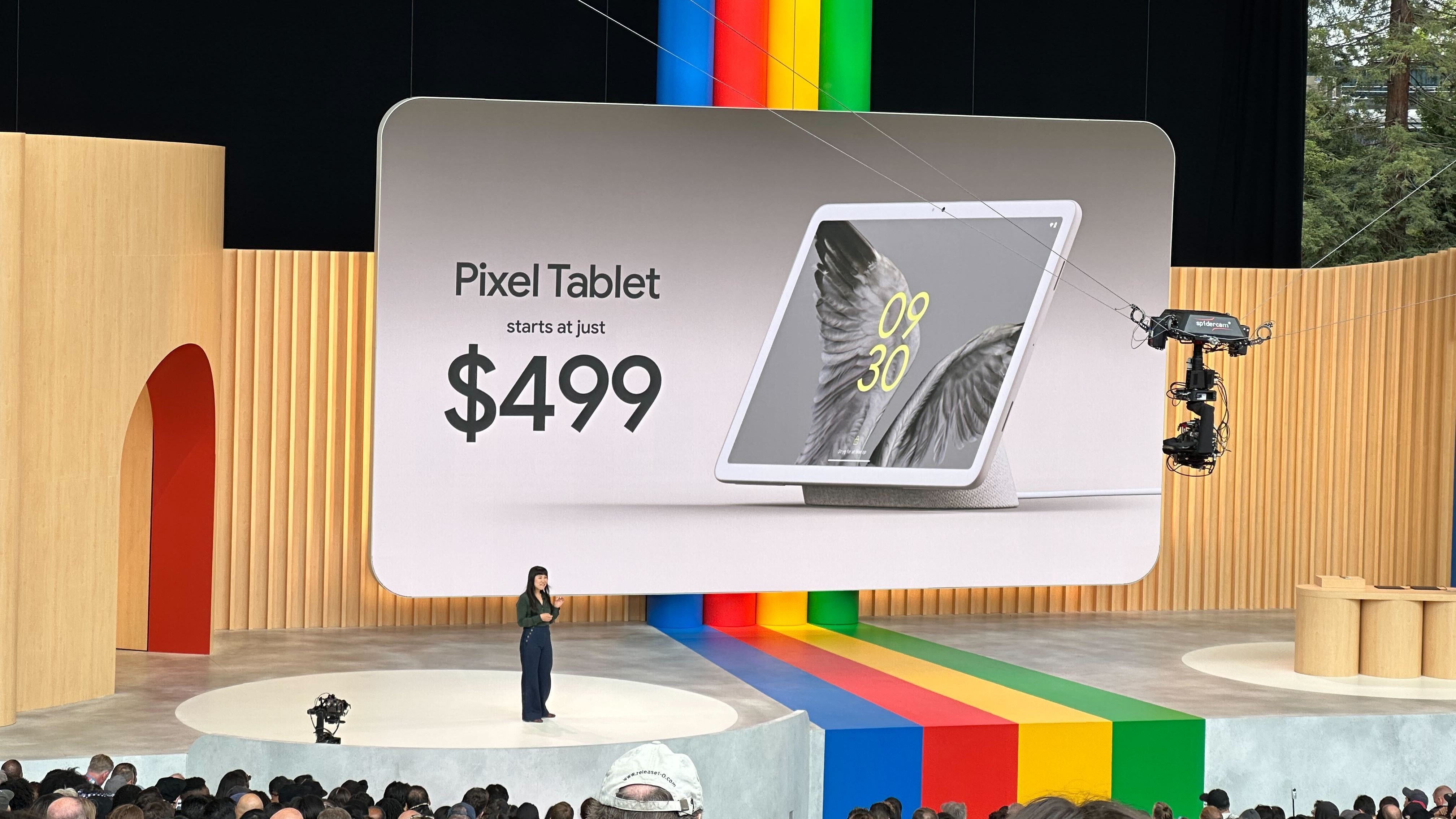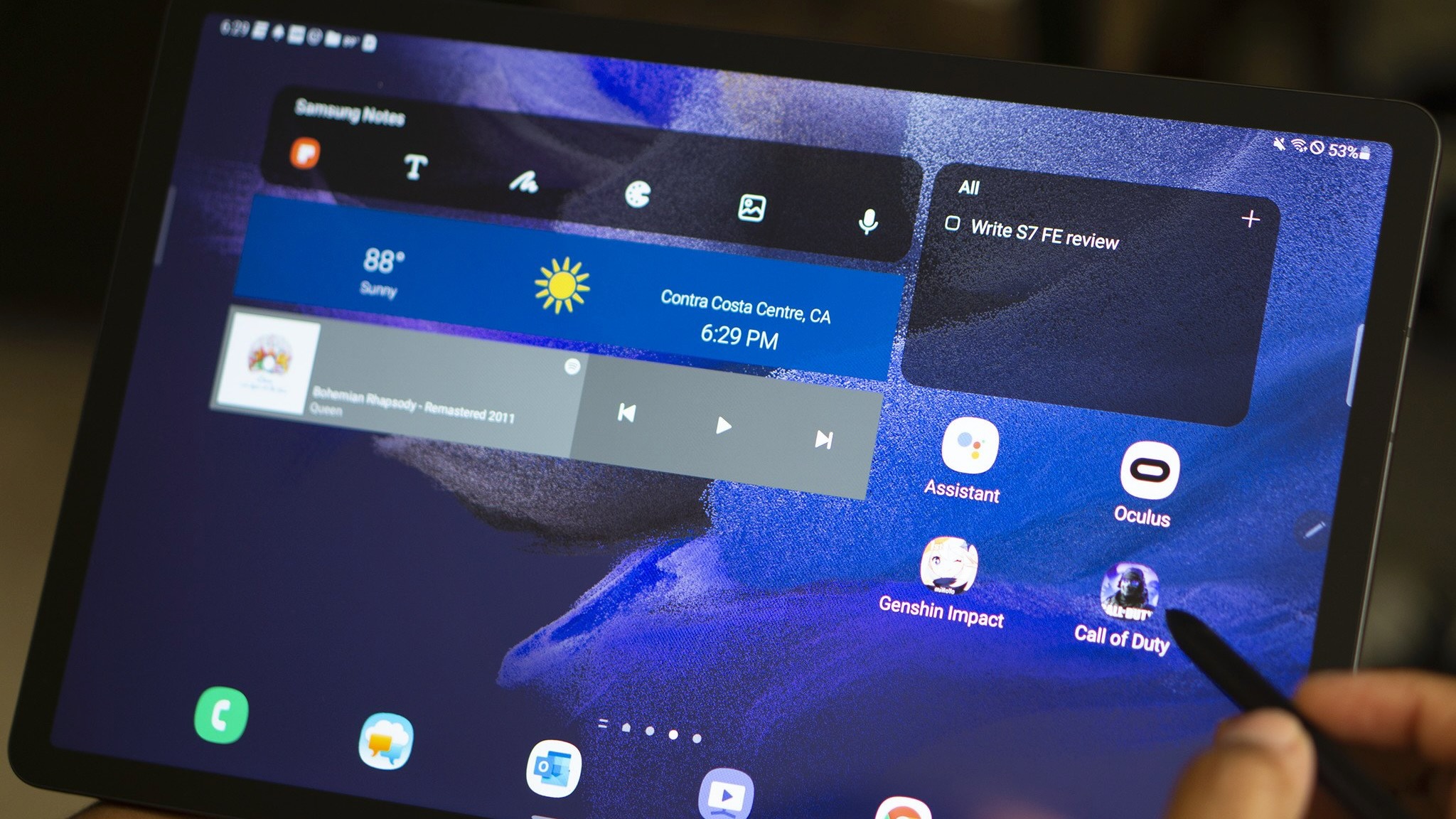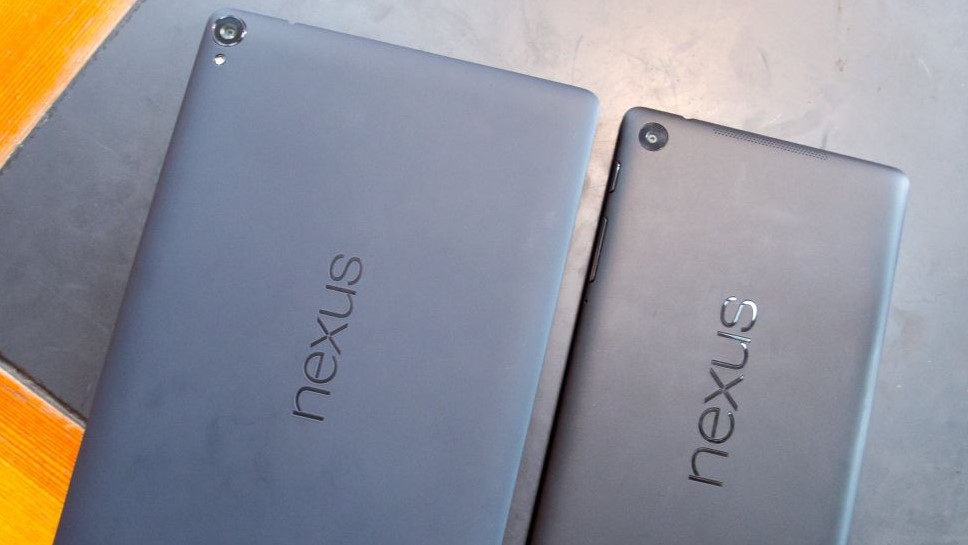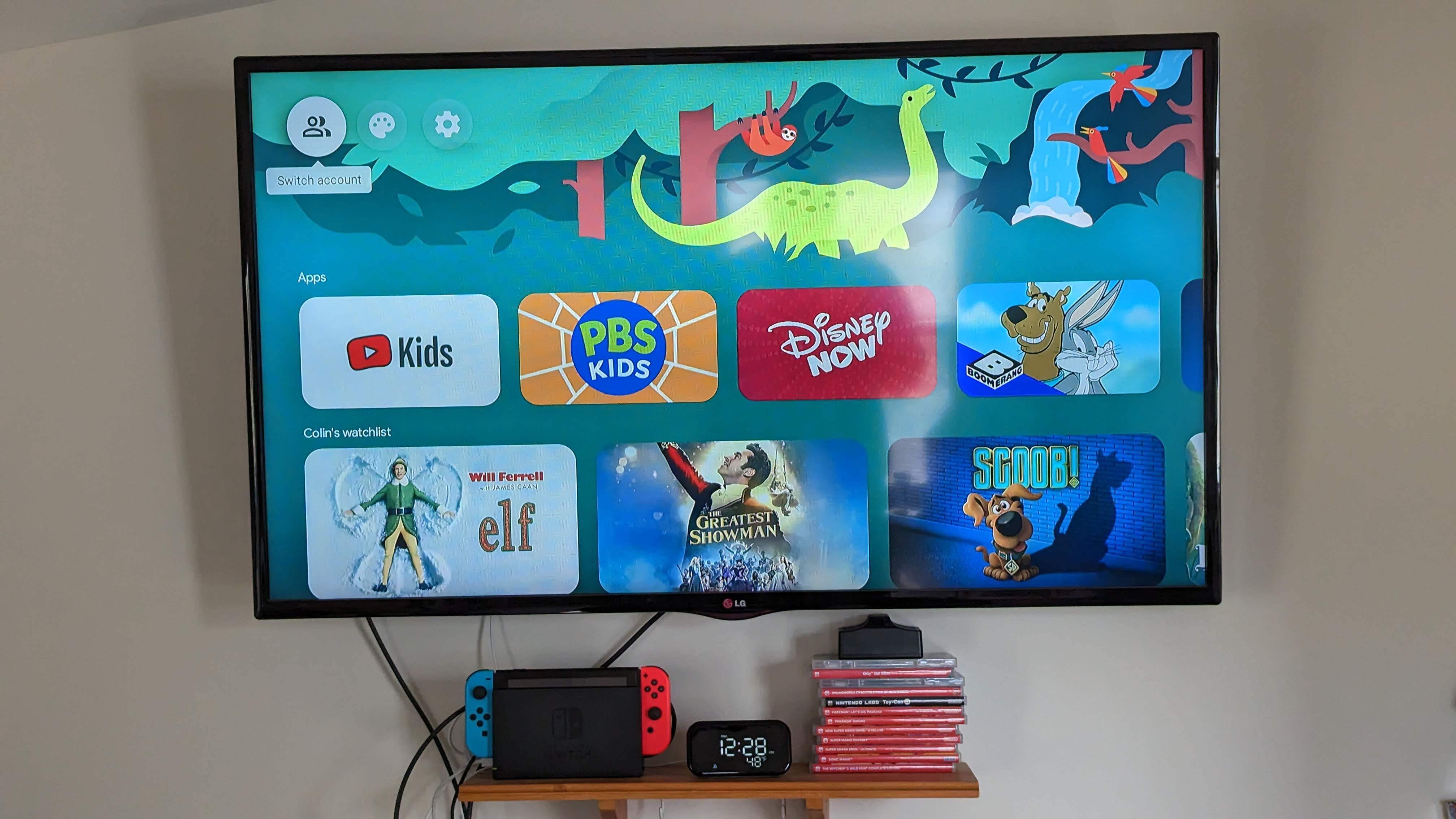
I'm an Android enthusiast. I was one of the few people who waited in line for the T-Mobile G1 and have used countless Android phones since. I have every Nexus device. including the Nexus Q, in its original box on a shelf here in my office. It's safe to call me an Android nerd.
Yet whenever anyone asks what tablet they should buy, I suggest an iPad because it's the better all-around device.
To me, this is a problem. Not that I think an iPad is the best tablet, but that it's not even close. And it's not because we don't have any great choices when it comes to tablet hardware that runs Android because the Galaxy Tab S8 Plus is another masterpiece of design from Samsung.
It is all about one thing: the software.

Android and the apps that use the Android runtime to work were designed to work on any size display. And that works fairly well. You can even sideload apps that aren't available in the Play Store for tablets and most of the time they install and run.
The same can be said for the Android "interface" itself. While all vendors use a customized interface, they are mostly the same at the core — you have one or more home screens for shortcuts or widgets and a paginated place for a list of all your installed apps. What you see on your phone is basically what you see on an Android tablet.
I use the word software to describe these two areas and I think they are both problematic when it comes to Android on a tablet. Problematic, but not insurmountable. Fixing one of them is where the Pixel Tablet comes into the picture.
Google can build an interface that works well with the form factor of a device. That's not opinion and if you look at Android on a phone, Android on a watch, Android on a TV, or Android in your car you see the proof. It's not perfect but it shows Google is willing to make the necessary changes so we are more productive or can access our content in a better way.
We've seen Android tablets from Google before. Quite a few of them, so the Pixel Tablet is not Google's first attempt to tackle the problem. It is the Pixel team's first try, though, and I think this is the right way to make a better Android for tablets.

A Nexus 9, for example, was a reference device that didn't include extra features or software changes from the Nexus 6p by design. It was purely a vehicle for developers to build applications that would work on any and every Android tablet. this means it was for the best if the Nexus 9 performed in a bland but familiar way when it came to the Google-provided software. You used a Nexus 9 — or a Nexus 7 or the Nexus 10 or whatever — to test your app and any changes on a larger display because you knew that all the standard Android APIs were in place and worked as intended with nothing extra.
The changes that matter and were to make Android tablets great came with Android Honeycomb Ice Cream Sandwich Jellybean KitKat Lollipop Marshmallow Nougat 12L. Yeah.
A Pixel Tablet is not a reference device and is closer to the Galaxy Tab Plus than it is to the Nexus 9. Yes it will include all the Android APIs and they will work as intended, but that's where things can diverge. There is nothing stopping the Pixel team from changing what we're used to seeing.
This is precisely what Google did with the television interface. Remember when the Chromecast with Google TV launched? It provided access to everything we expected from a Google TV device or a Chromecast in a new way that was better. The device may be a little underpowered or not have enough storage, or have issues with some Wi-Fi networks, etc. The complaints that have been levied against it are all valid but the software still works.
This is what we should expect from a Pixel Tablet. We may not see it, but we should expect it. A great interface built atop great tablet software on a great tablet is important, and it's something that only Amazon has been able to do so far. But it's only part of the solution.
The developer dilemma

There is only one reason to pick up a tablet, no matter what company makes it — to access some sort of content.
It could be a point-of-sale network, an inventory management system, or something more fun like social media or watching a movie. When you reach for a tablet, any electronic device really, you are doing so because you want to do something.
On an Android tablet, chances are you will be able to do anything you want to do but the experience is not going to be good. This is not a tablet issue because the same can be said for Android apps on a Chromebook. This is not an Android issue because those same apps often provide a great phone-sized experience. This is 100% an application issue.
It's also something only app developers can fix. Unfortunately, there isn't a lot of incentive for them to fix anything.
It's the perfect demonstration of the phrase Catch-22. It's challenging to spend time and resources perfecting your app for a tablet because the market is small. the demand for Android tablets is small because the apps we want or need don't perform as well as those on an iPad.
Either way, this is almost impossible for Google to fix. Almost.
Google has three options here. It could develop its own in-house tablet and sell it so cheap everyone would buy it, even if the company has to lose money to grow market share. Google didn't do that with the $500 Pixel tablet.
Google could also kick every app that doesn't meet specific standards on a tablet out of the Play Store. This is what Apple does and why the apps you see in the App Store on an iPad all perform as expected. It also sucks and I really don't ever see Google trying to be so heavy-handed and treat its developers so poorly. Even if they should. sometimes.
The third solution is cold hard cash. Google likes to tout its list of favorite fortunate-son developers whenever it launches a product. Stop doing that, let multi-million dollar companies like Strava or Duolingo fend for themselves, and provide training and grants to offset development costs for smaller developers who really need it.
I have no idea what Google plans to do about any of this, how the Pixel Tablet fits into it all, or if the company even sees the same problems. Maybe Google loves the current state of Android on tablets, even though it famously stopped caring about them completely not too long ago.
What I do know is that making a tablet under the Pixel name doesn't fix anything unless there is more to come on the software side.







